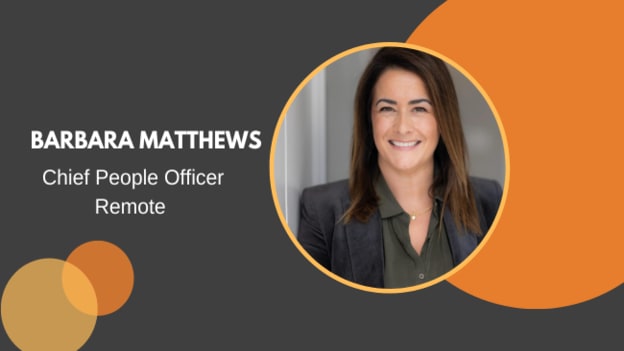Rewards and recognition crucial to business, says Remote’s CPO Barbara Matthews

In an era defined by remote work and evolving employee priorities, the significance of rewards and recognition in shaping company culture has never been more crucial. Barbara Matthews, Chief People Officer (CPO) at Remote, a company specialising in global workforce management, shares her extensive experience across diverse industries in developing and implementing effective rewards and recognition programs.
You come with experience across the people spectrum in retail, tech, MNC, and fintech industries. Can you share your experience in developing and implementing rewards and recognition programs across different industries? What were the key differences and similarities you observed?
For the last 20 years, I have worked in globally distributed companies that have people based in multiple locations around the world. One of the challenges I have seen across companies is how to ensure everyone gets consistent levels of rewards and recognition while balancing that with what is locally relevant - a “GLocal R&R” program if you will.
One key learning from my career is that as teams become more globally spread out, it’s important to provide rewards and recognition programs that resonate with them, rather than a one-size-fits-all approach. There were few specific differences across the verticals I worked in, but no matter the industry or geographic location, one thing is certain: people want to feel valued and appreciated for their contributions. The best rewards and recognition programs are built on the premise that they are not one-off, but rather a continued process that is embedded within the values and culture of the company. This is crucial to the business, as it helps create a supportive work environment that can boost motivation and productivity, and ensure the retention of top talent.
What role does the company culture play in designing effective rewards and recognition programs? Can you provide examples of how you've adapted programs to fit different cultures?
Rewards and recognition programs are a direct reflection of company culture. As a trusted partner helping companies across Asia and around the world hire, manage, and pay their globally distributed workforce, Remote truly embodies a remote-first work culture. We live and breathe by our core ethos that you should be able to both hire and attract talent from anywhere. Earlier this year, we went through a culture and values reboot across all levels of Remote to make strategic adjustments to reflect this ethos and to accommodate the specific needs of our globally distributed workforce.
As a result, we’ve designed our ‘Total Rewards’ strategy to ensure fair, unbiased, and equitable pay and compensation, along with competitive benefits in all locations in which we operate. The strategy builds a high-performance environment with comprehensive and impactful initiatives that go beyond traditional compensation and benefits, encompassing all aspects of the employee experience.
One of the initiatives I am most proud of is our parental leave benefit which isn’t curtailed by any tenure requirement and is available to all and to both parents/caregivers, regardless of gender and whether the baby was adopted or through birth. We try to think really holistically about our employees and build global and diverse programs around them.
Remote uses the term “life-work balance” to reflect our people-first culture. We recognise that life and personal obligations always come first. Our team members around the world receive unlimited personal time off and flexible working hours. We operate with an asynchronous work model, so that team members can fit work into their lives, not the other way around. Employees are always encouraged to take the time they need to tend to personal commitments such as family time, important events, and their health and well-being.
A thriving workforce where employees feel valued and appreciated fosters success at every level. When managing globally distributed workforces, companies must be intentional about their approach to reward and recognise employees through everyday workplace culture rather than just on occasion.
Finally, it’s important to consider how the rewards and recognition program evolves and grows with a company, we should never consider a program done and complete. We should always be looking at global trends, talking to our teams and determining what their needs are and how they are changing.
For a globally distributed company, we are focused on ensuring asynchronous and flexible hours while also recognising that sometimes employees do feel the need to connect in real life. To enable that, we provide an in person meet up budget as well.
How has the culture of employee rewards and recognition changed for businesses over the last three years?
Over the past three years, in the wake of a global pandemic, people’s priorities have changed. A bonus at the end of the year or an office pizza party just isn’t going to cut it anymore. The Great Resignation and the trend of ‘quiet-quitting’ in recent years tell us that employees have a strong need to feel valued, appreciated, and fulfilled at work. That means giving more flexibility and freedom to devote time to things that matter most in their lives. In fact, according to the 2023 Remote Workforce Report, 42% of Gen Z reported that they would leave their current job for a remote work opportunity.
The traditional reliance on monetary incentives has given way to a more holistic culture of recognition, encompassing non-monetary rewards and benefits. Businesses must now make a larger commitment to invest in people, offering comprehensive benefits and policies to support a balanced work and personal life in alignment with the evolving needs of an increasingly global workforce.
What according to you is the most important non-tangible reward when it comes to employee appreciation and retaining them in the long run?
Trust is one of the most rewarding things you can give to your team members. Building a culture of trust empowers employees to do their best work, and helps to develop engaged and loyal team members in the long-run.
One of the ways we show our team members that we trust and value their work is to give them the freedom to manage their own working hours. We are actively pushing back against the outdated belief that everyone needs to have the same work schedule. When working with a globally distributed team, a set work schedule across different time zones may not even be possible. Our asynchronous work model, for instance, is one way that we offer flexibility and establish a culture of trust at Remote.
At the end of the day, we value output and productivity over face-time, and we show our appreciation for our team members by trusting that they will get their work done. It’s a relationship of mutual expectation and accountability.
What are the new challenges for HR leaders while offering diverse and equitable rewards and benefits for the globally distributed workforce to attract and retain the best talent?
Many modern businesses are not well-equipped to manage globally distributed teams. The 2023 IDC InfoBrief sponsored by Remote, “Bridging the Talent Gap: The Future of Hiring in the Asia/Pacific Region,” found that nearly half of 400 companies surveyed across Singapore, India, Australia and New Zealand lack a dedicated remote worker management solution, clinging to disjointed tools, and juggling on average 16 HR systems.
Without a dedicated system to manage remote employees and contractors, it will be increasingly difficult for companies to keep track of and ensure equitable rewards and benefits programs for team members based in various locations around the world. Most importantly, companies must move away from a one-size-fits-all approach and instead adopt more holistic, adaptable strategies to designing rewards and recognition programs, making sure to localise benefits depending on the different needs of their distributed global team members. Otherwise, companies may find themselves left out of the competition and out of reach from the global talent pool.
What benefits do you believe an employee should consider most closely while moving into a new job? Do they always consider what they should?
When considering a new job, employees should closely evaluate factors like life-work balance, growth opportunities, and cultural fit. Employees should consider whether the company displays a culture that prioritises flexibility and accounts for varying employee needs. The alignment of personal values with the company's mission and the potential for skill development will be key in determining long-term career satisfaction.
Finding these types of roles can be challenging as many job boards available today often fail to accurately state whether a role is fully remote, hybrid, or in-office. To help make global employment more equitable, we’ve just launched Remote Talent, a new platform to help job seekers find vetted remote roles for global companies, with total transparency around expected salary, requirements, and of course, work models.
















